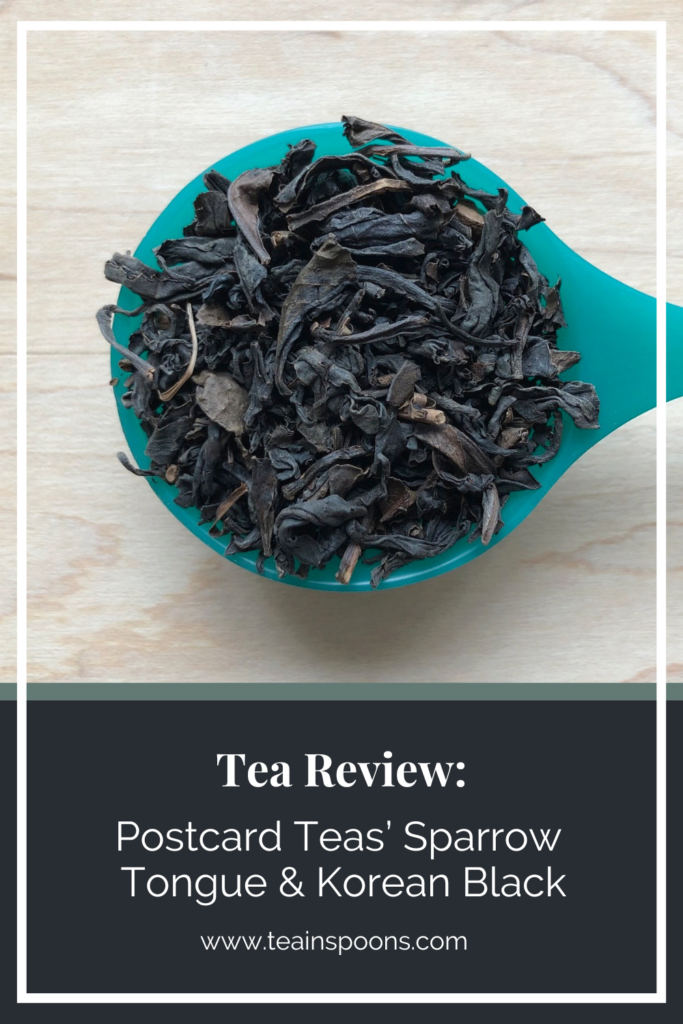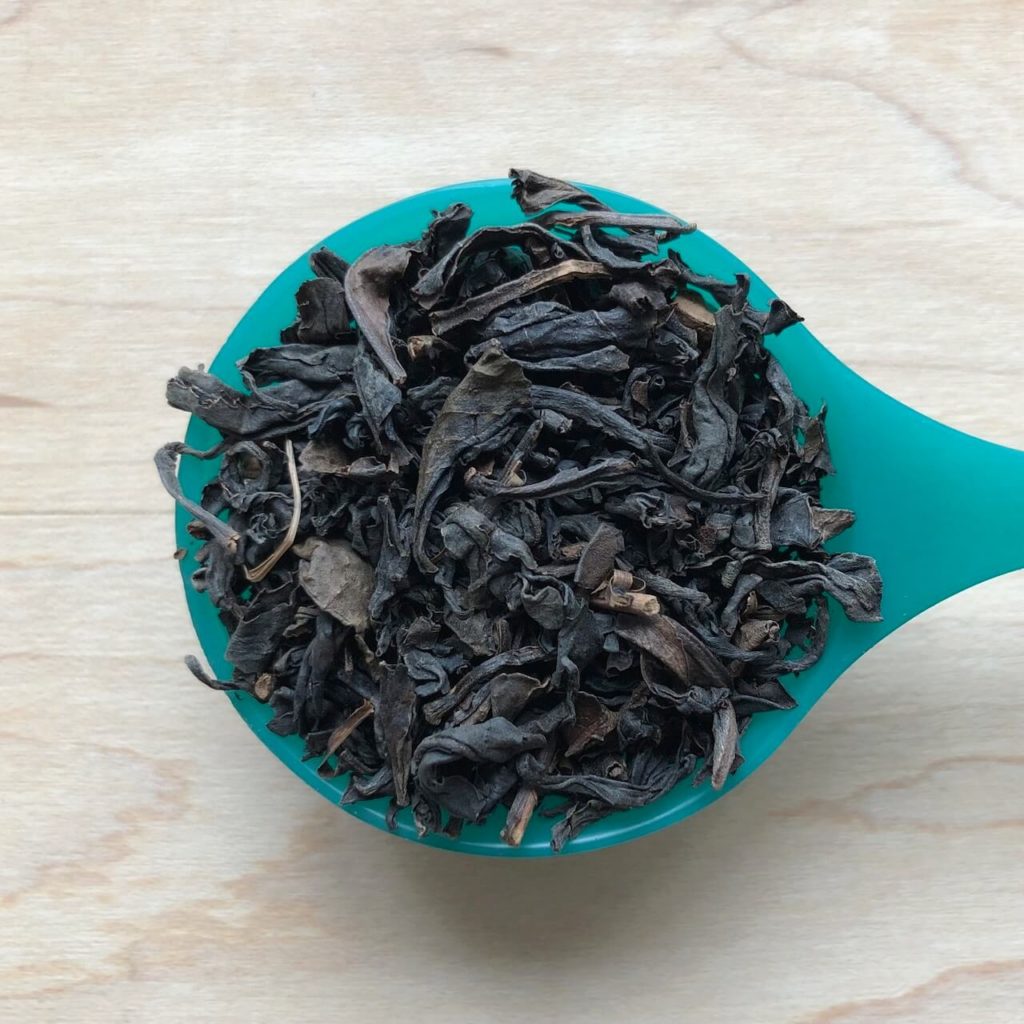
Korean teas are still hard to come by, so whenever I have the chance, I like tasting them!
I had been eyeing Postcard Teas in London, UK for some time. What I liked about the brand is the strong emphasis on tea farmers. Having been an intern on a tea farm in Japan before, this is especially important to me. Postcard Teas only works with small/micro farmers that have farms 15 acres or less and the average farm is 5 acres in size.
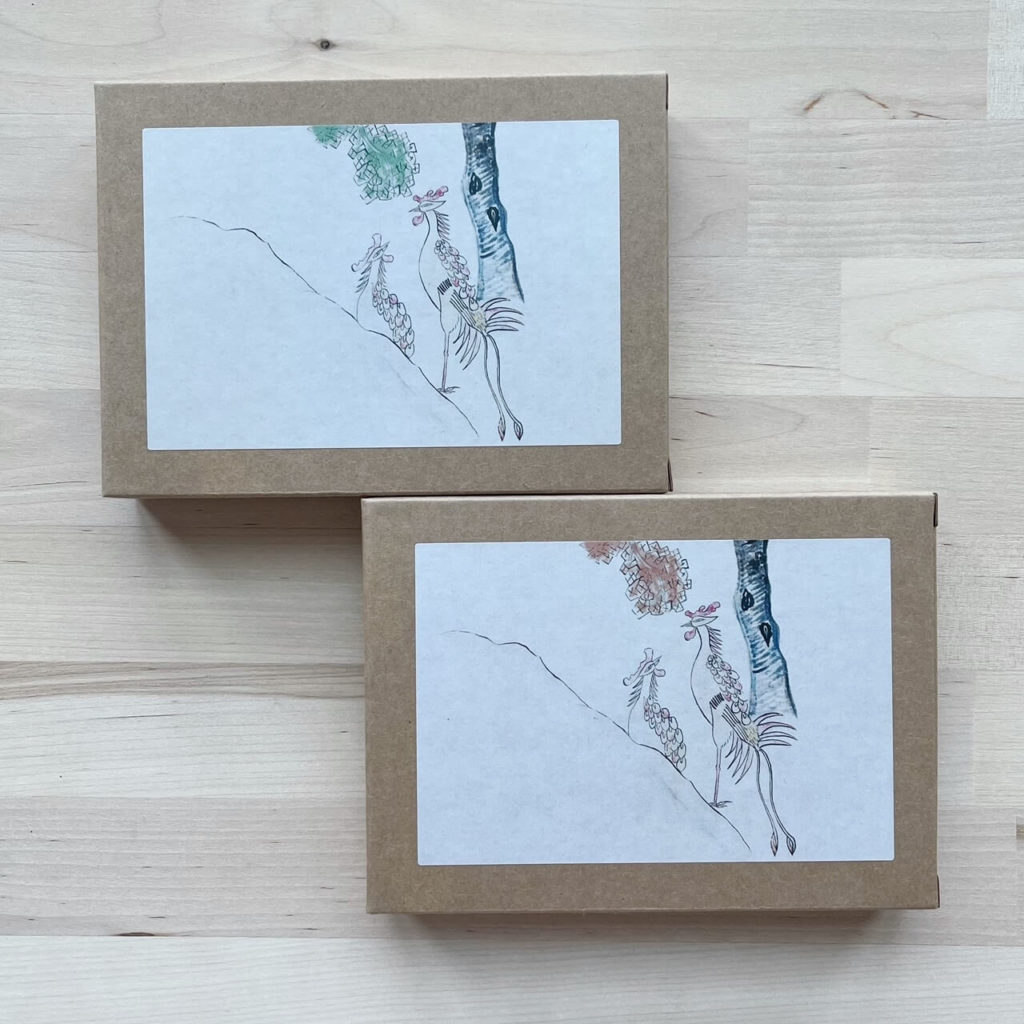
I wanted to sample a handful of teas, so I purchased two teas each from three different countries so I could conduct comparative tastings! When purchasing teas from Postcard Teas, there are a few options from caddy/tins to postcards. Due to the name of the brand, of course, I decided on the latter since the boxes look like postcards! Inside the box was a ziplock pouch with tea and a reusable tea bag.
This review will compare a green and black tea from the Dong Cheon, a cooperative of 88 farmers who focus on traditional methods and do not use pesticides or artificial fertilisers. The teas were hand-picked from old semi-wild tea trees from Chirisan Mountain in Hwagae Valley. The semi-wild plants are descendants of the first tea plants in Korea! I specifically picked these teas because the same leaves are processed to make the green and black teas. Lastly, the teas were harvested in spring 2023 and are Camellia Sinensis Sinensis of semi-wild Hadong cultivars.
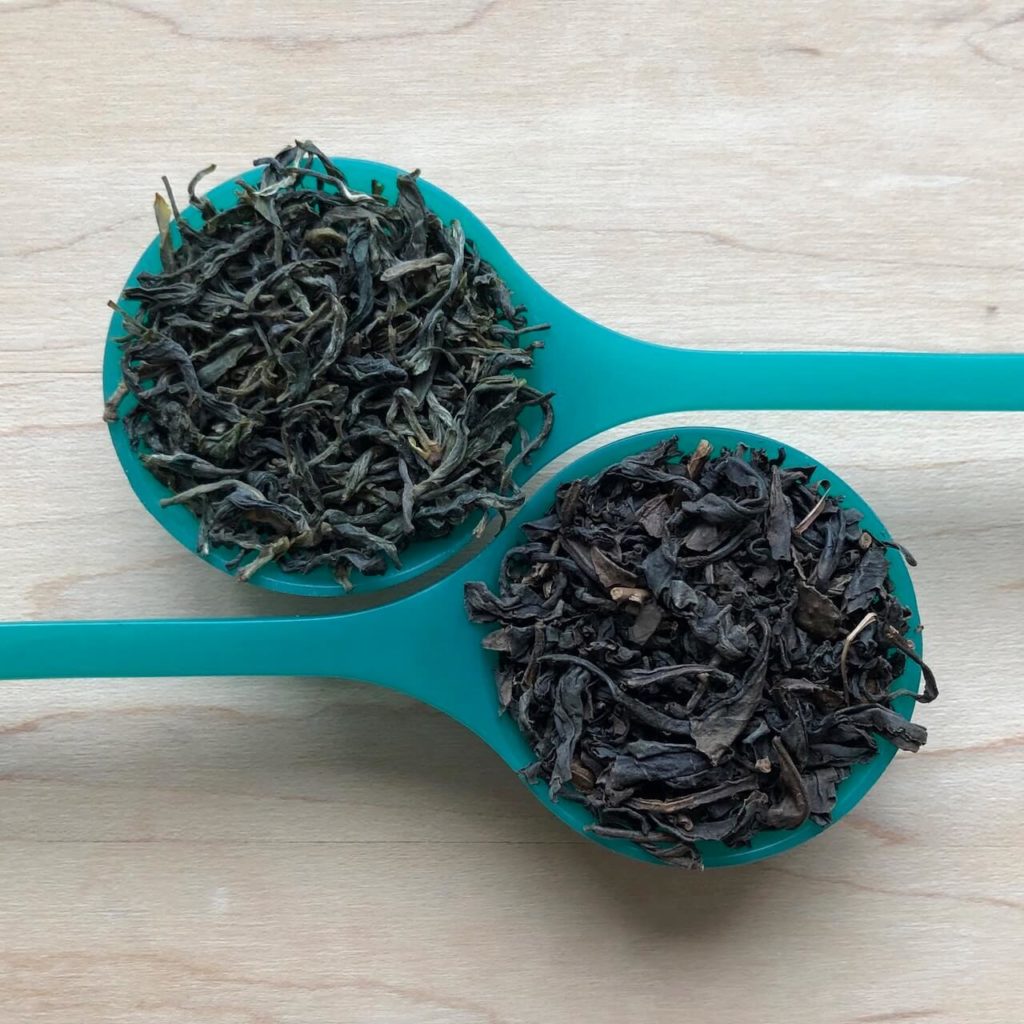
At the time of writing this review, Postcard Teas provided recommendations on the temperature, amount of tea, water, and the number of infusions, however, it did not specify steep times. So, I brewed the teas using modified recommendations from Soocha Teas, a Korean tea brand, based on the information provided by Postcard Teas.
Sparrow Tounge
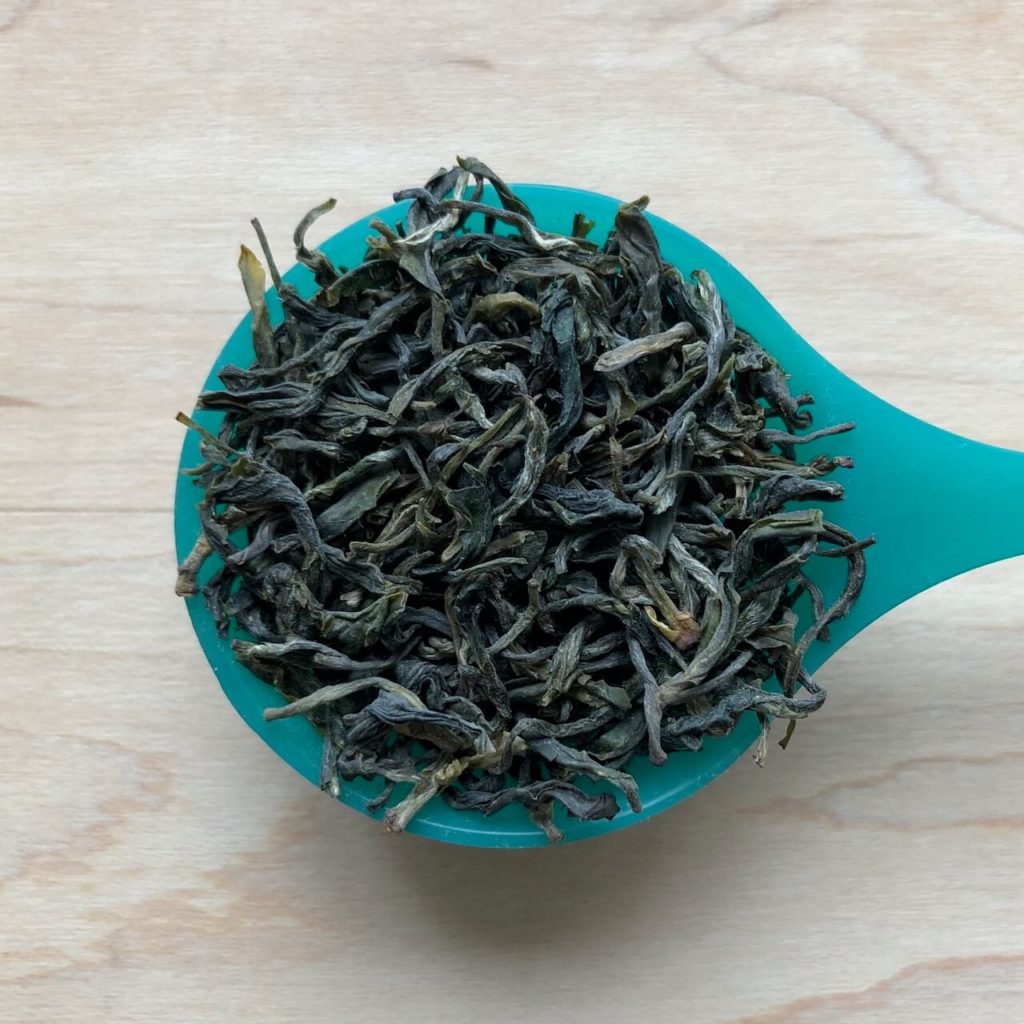
Description: “The dry leaf aroma is fresh and vegetal, while the brewed tea is soft in texture with a long-lasting nut kernel sweetness.”
Instructions: 75°C | 4-5g per 100ml| 4 infusions | high ratio of leaf/water to bring out the umami and sweetness in the tea.
Review: As noted by the brand, this Sparrow Tounge is Sejak grade, the second highest grade in the Korean grading system which is based on the lunar calendar. The dry leaves smelled like pine needles, seaweed, and roasted nuts. They were a dark green colour and slightly wiry.
Infusion 1 (1 minute and 30 seconds): After brewing, the liquor was a cloudy yellow colour with small tea hairs floating on top. It smelled roasted, like popcorn or peanuts, with a light savoury and vegetal quality. The colour and the smell of the tea reminded me of pan-fired Chinese teas and had a mineral, seaweed, vegetal, and roasted taste. The liquor left a savoury note at the back of the throat and a drying sensation. When cooled, the liquor was reminiscent of Dragon Well/Long Jing.
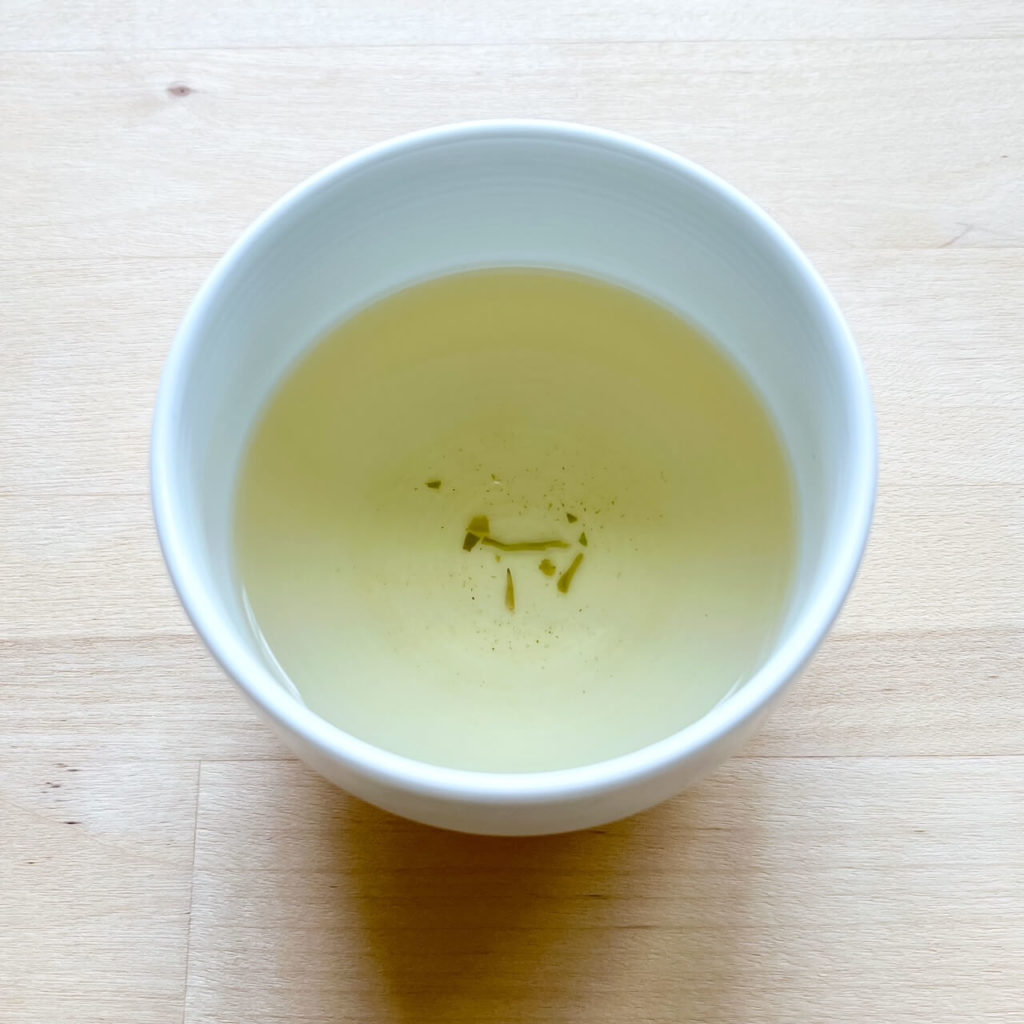
Infusion 2 (2 minutes): The golden tan liquor was still cloudy and had a stronger toasted smell. Tastewise, the liquor still had a roasted quality but was more vegetal and sharp, like freshly steamed asparagus and spinach. There was some bitterness at the end of the sip.
Infusion 1 (2 minutes and 30 seconds): A lighter yellow colour appeared after brewing the leaves and the flavour was starting to wane. It tasted like cooked vegetable water with bitterness at the back of the throat and dryness on the tongue.
Infusion 1 (3 minutes): There was the faint taste of fresh-cut grass. The taste remained in the mouth and left the back of the throat dry.
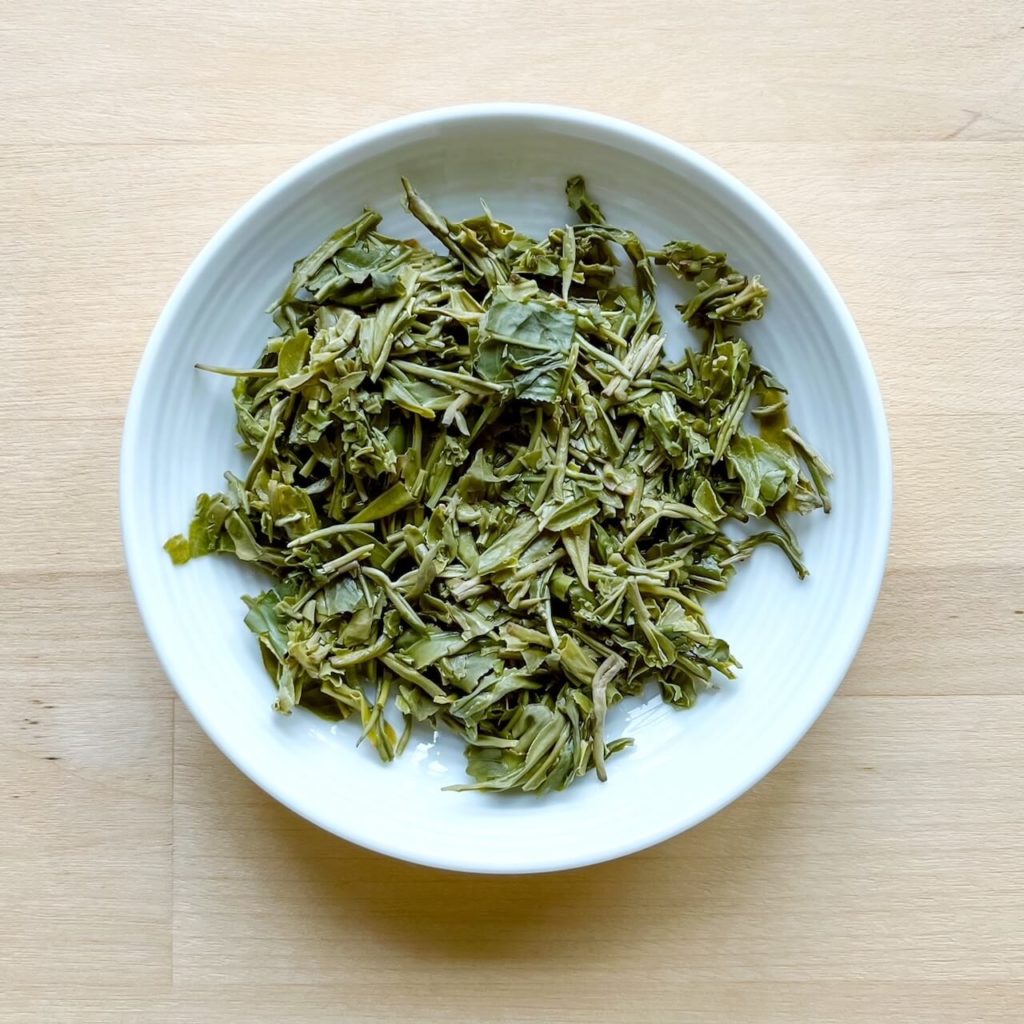
With the unified tea buds and small leaves, I can see why it is called Sparrow Tongue! The olive green wet leaves and stems had a vegetal and nutty smell. The taste was quite vegetal but also had some nuttiness. This would be good for anyone who enjoys teas like Dragon Well/Long Jing that have a roasted/peanut profile (3.5/5 rating).
- Type: Green tea
- Origin: Hwagae Valley, South Korea
- Caffeine: Unknown
- Ingredients: Green tea
- Company: Postcard Teas
Korean Black

Description: “This is an elegant, well structured black tea with a honeyed sweetness and notes of walnut, sweet potato and milk chocolate.”
Instructions: 95°C | 4g per 150ml | 4 infusions | high leaf/water ratio [ ]over short, multiple infusions
Review: The dry tea smelled sweet and fruity like figs and apricots. Compared to the Sparrow Tounge, the black tea had more stems and the leaves were larger. The colour was a warm dark grey/chocolate brown.
Infusion 1 (1 minute): Once infused, the liquor was a reddish brown colour with a berry, stone-fruit, roasted, and woody smell. It tasted sweet, herbaceous, and of wild honey with a lingering woody taste. When cooled, there was more of a malt and cocoa taste alongside the woodiness.
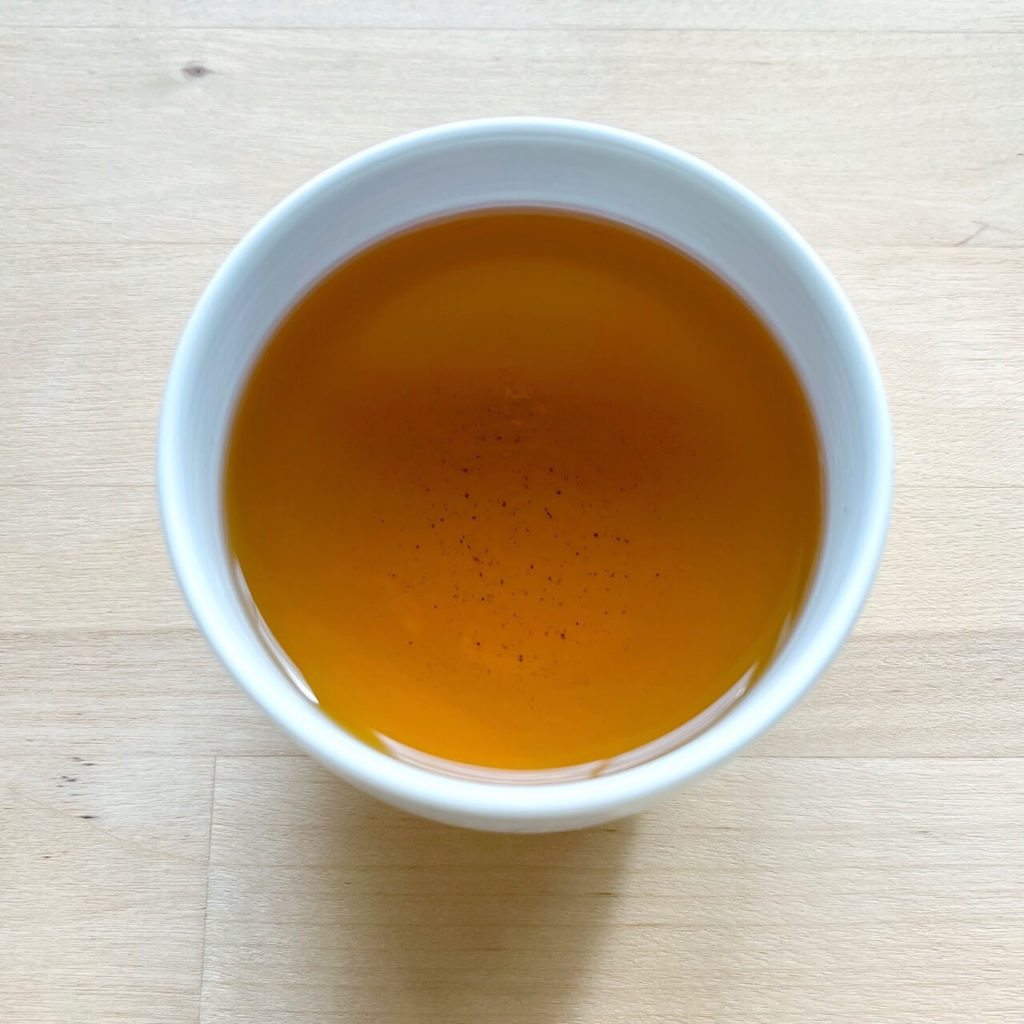
Infusion 2 (1 minute and 30 seconds): The flavour was less sweet and lean more malt, woody, herbal, and mineral. It left a hint of nectar and wild honey sweetness on the tongue.
Infusion 3 (2 minutes): The reddish-brown liquor smelled herbal and had a waning woody and bark flavour. It was drying at the back of the throat.
Infusion 4 (2 minutes and 30 seconds): The flavour was muted and tasted sweet like maple water with a roasted character.
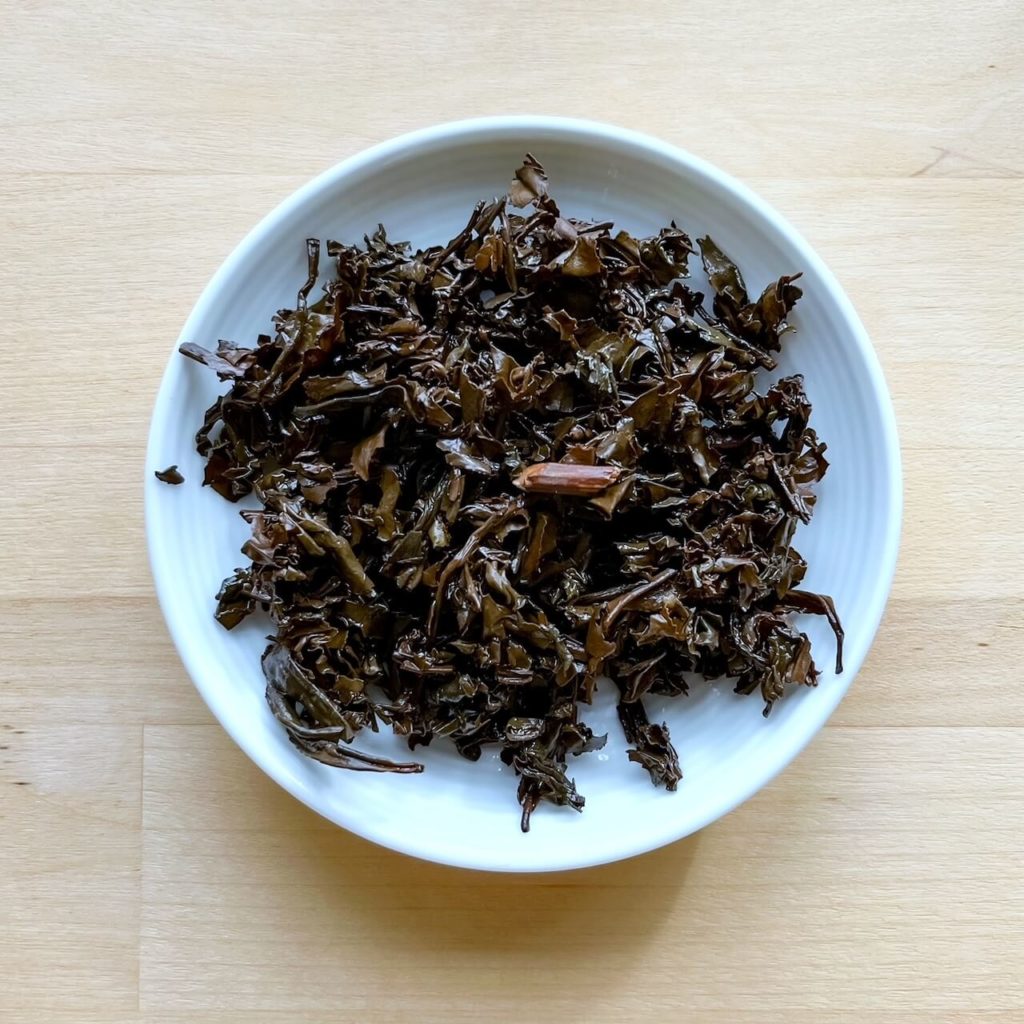
The wet leaves smelled roasted and woody and were comprised of broken leaves and stems. This black tea leaned more roasted and mineral, but there was an underpinning sweetness. This would be a nice tea for people who like more roasted and woody black teas (3/5 rating).
- Type: Black tea
- Origin: Hwagae Valley, South Korea
- Caffeine: Unknown
- Ingredients: Black tea
- Company: Postcard Teas
Comparison
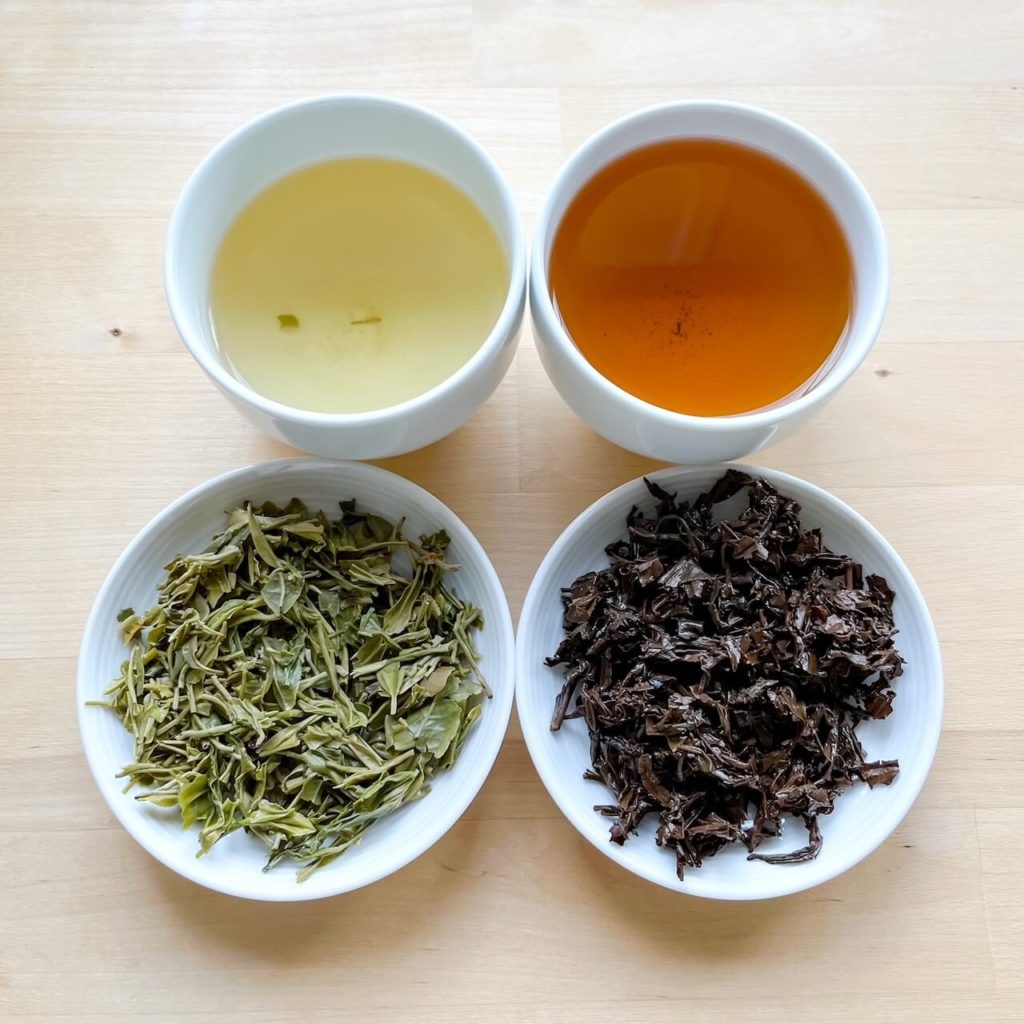
In past tea comparisons, it was easier to pinpoint the similarities between teas. However, with these two, it was more subtle. Some similarities I noticed were that both the green and black tea had a mineral/seaweed taste and honey/fruity sweetness. These teas reminded me of the green and black Korean teas I tried from Camellia Sinensis Teahouse. Both teas also had a nutty quality, which I assume is due to processing. It was nice to try them side-by-side and I can not wait to try more teas from Postcard Teas!
Liked this review of Postcard Teas’ Sparrow Tongue & Korean Black? Pin it!
